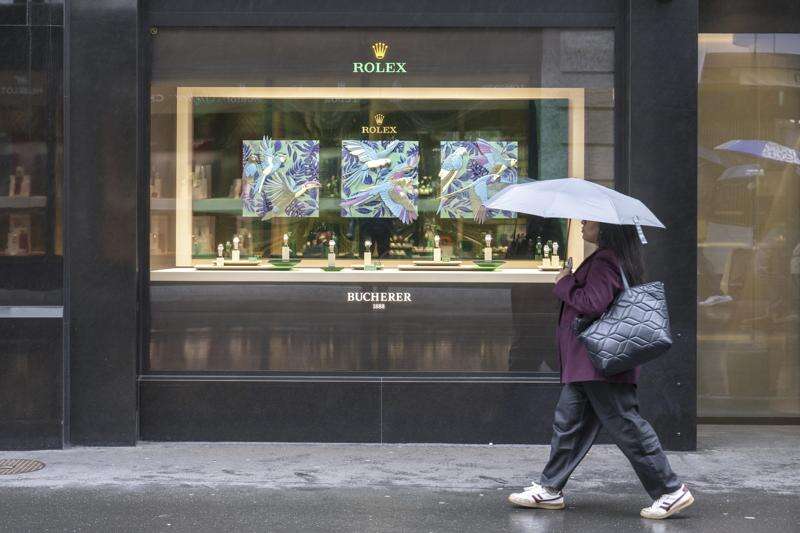URGENT UPDATE: A new executive order from U.S. President Donald Trump threatens to impose a staggering 39% tariff on Swiss imports, potentially skyrocketing prices for luxury goods, including Swiss watches, chocolate, and cheese. This trade decision, set to take effect on next Thursday, is causing alarm among Swiss businesses and American consumers alike.
The announcement comes as part of Trump’s ongoing trade war, which targets 66 countries, including the European Union, Taiwan, and the Falkland Islands. Swiss President Karin Keller-Sutter expressed her shock, stating that the tariff rate exceeded earlier expectations, particularly following negotiations last month that led to a different understanding. “We will now analyze the situation and try to find a solution,” Keller-Sutter told reporters, noting that the abrupt move could significantly damage the economy.
With the U.S. goods trade deficit with Switzerland soaring to $38.5 billion last year—an increase of 56.9%—the ramifications of these tariffs are profound. Keller-Sutter suggested that the chosen tariff rate was likely influenced by this deficit, indicating a sharp focus on trade balances by the American administration.
For Swiss watchmakers, already facing declining exports in key markets like the U.S. and Japan, the tariff could mean a dramatic rise in prices on luxury timepieces, some already priced in the tens of thousands of euros. The Federation of the Swiss Watch Industry condemned the new tariff, emphasizing that the absence of reciprocity—due to Switzerland having eliminated import tariffs on industrial goods—poses a severe issue for bilateral relations.
Meanwhile, the Swiss chocolate industry, represented by Roger Wehrli of the Association of Swiss Chocolate Manufacturers, is bracing for impact. With 7% of Swiss chocolate being exported to the U.S., Wehrli warned that accounting for the exchange rate could result in nearly a 50% increase in costs. “I expect that our industry will lose customers in the United States, and that sales volumes will decrease heavily,” he said.
Swiss chocolate giants like Nestlé and Lindt & Sprüngli maintain U.S. production lines, but smaller companies may struggle to survive. Wehrli hopes consumers will still see the value in premium Swiss products despite rising prices, saying, “It’s worth it to really eat it consciously and to really enjoy it instead of eating a lot.”
The pharmaceutical sector is not exempt from these looming tariffs. Swiss companies Roche and Novartis are preparing to mitigate potential impacts. Roche has committed to investing $50 billion in the U.S. over the next five years, creating 12,000 jobs, while emphasizing the need for tariff exemptions to protect patient access to vital medications. Novartis is currently reviewing the executive order, stressing their commitment to improving affordability for patients.
As the clock ticks down to the implementation date, the uncertainty surrounding these tariffs looms large over Swiss industries. The implications for both Swiss exporters and American consumers could reshape the landscape of luxury goods and essential products alike.
Stay tuned for updates as the situation unfolds and businesses scramble to adapt to this significant trade shift.
